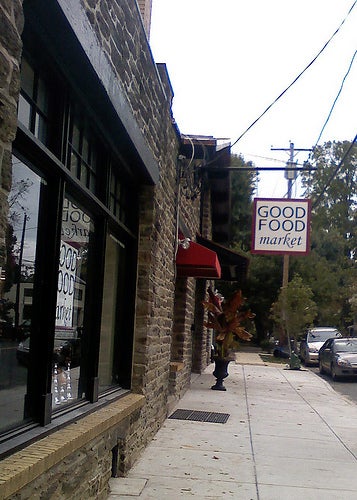Opinion / Tossing out communities with the zoning code

COMMENTARY
The Nov. 20 Inquirer commentary, City to business, Drop dead, by Paul Davies tells the story of two Chestnut Hill moms unsuccessfully trying to expand their services at the Good Food Market amid opposition from neighbors.
This story of frustration can lead towards skepticism for the role of community groups in the development review process. This was clearly Councilman Bill Green’s stance when he declared at the recent Zoning Code Commission meeting that community groups are a “drag” on development. He then voiced his opinion that there would be no need for their involvement in the development review process after the Commission rewrites the zoning code and remaps the city.
Contrary to this conclusion is the fact that the Chestnut Hill Community Association did not oppose the zoning variances that were required to serve coffee and sandwiches at the market. Rather, the community group submitted a positive position letter to the Zoning Board of Adjustment, the city’s authority on variances, along with signatures of support from over 400 neighbors. But not all neighbors were in agreement and those who were not “called in some political juice,” as Davies reports, contacting one state representative and two Council members to intervene.
When the case came before the ZBA, the “political juice” prevailed and the neighborhood consensus lost. Also contributing to the decision were the 20 opposing neighbors who showed up at the hearing. The market-owning moms, much to their regret, had not wanted to bother their supporters by asking them to take time off and head downtown for the hearing. They had expected the letter from the Chestnut Hill Community Association and 400 signatures to be enough.
In prior years, they would have been correct. The first stop for property owners seeking zoning variances in Philadelphia has been the local community zoning committee. Across the city, these committees provide a local forum to discuss zoning variances and the implications for neighboring property owners. The next stop is the Zoning Board of Adjustment, where decisions have typically aligned with the community position. But things have been changing at the ZBA and it seems that decisions are being made more often that are not consistent with the requests of community groups.
Contributing to this trend is the belief that community groups have had too much say in the past and their role should be diminished for the sake of streamlining the development review process. The problem with this is that at the local level the alternative to community consensus is individual opinions. And in the case of land use decisions, the individual opinion with the most political sway will prevail. Sometimes this might be the developer, sometimes it might be a government figure, sometimes it might be the loudest voice that happens to show up at a zoning hearing.
Consensus building is not easy, and there is room for improving the process at many community groups. But if the voices of community groups are disregarded, developmental decisions will be more subject to individual and political influences, which would most likely be more unpredictable and arbitrary than community consensus. This would be a real “drag” for communities, developers and property owners and would most certainly lead to more litigation and further – not less – development delays.
The efforts of the Zoning Code Commission to rewrite the zoning code as well as the stronger role now given to the Planning Commission in shaping the growth of the city are good news. Rather than dismiss the complementary, local role of community groups, Councilman Green and the Zoning Code Commission should work to craft a code that enables communities to fully participate in a fair and transparent zoning decision process that can be predictably navigated by homeowners, developers and moms who want to serve coffee to their neighborhood. This is the type of zoning reform our city needs.
Timothy Kerner, AIA, is principal architect / urban designer at Terra Studio and chair of the Center City Residents Association zoning committee
Contact the writer at timkerner@terra-studio.com
WHYY is your source for fact-based, in-depth journalism and information. As a nonprofit organization, we rely on financial support from readers like you. Please give today.



